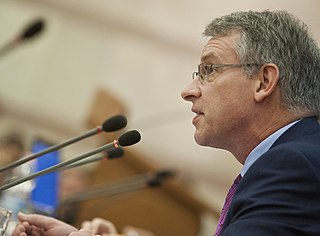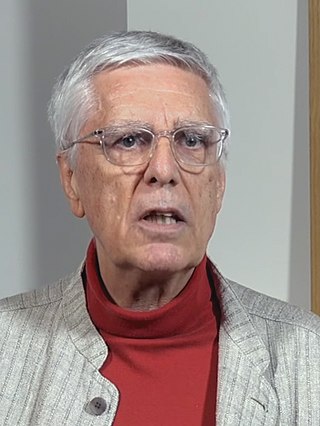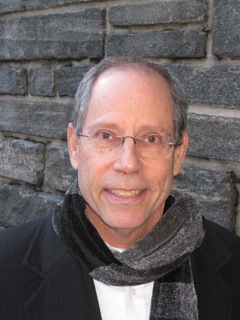Related Research Articles

Jean Bodin was a French jurist and political philosopher, member of the Parlement of Paris and professor of law in Toulouse. Bodin lived during the aftermath of the Protestant Reformation and wrote against the background of religious conflict in France. He seemed to be a nominal Catholic throughout his life but was critical of papal authority over governments and there was evidence he may have converted to Protestantism during his time in Geneva. Known for his theory of sovereignty, he favoured the strong central control of a national monarchy as an antidote to factional strife.

AgnoloAmbrogini, commonly known as Angelo Poliziano or simply Poliziano, anglicized as Politian, was an Italian classical scholar and poet of the Florentine Renaissance. His scholarship was instrumental in the divergence of Renaissance Latin from medieval norms and for developments in philology. His nickname Poliziano, by which he is chiefly identified to the present day, was derived from the Latin name of his birthplace, Montepulciano.

The designation "Renaissance philosophy" is used by historians of philosophy to refer to the thought of the period running in Europe roughly between 1400 and 1600. It therefore overlaps both with late medieval philosophy, which in the fourteenth and fifteenth centuries was influenced by notable figures such as Albert the Great, Thomas Aquinas, William of Ockham, and Marsilius of Padua, and early modern philosophy, which conventionally starts with René Descartes and his publication of the Discourse on Method in 1637.

Kwame Akroma-Ampim Kusi Anthony Appiah is a British-American philosopher and writer who has written about political philosophy, ethics, the philosophy of language and mind, and African intellectual history. Appiah was the Laurance S. Rockefeller University Professor of Philosophy at Princeton University, before moving to New York University (NYU) in 2014. He holds an appointment at the NYU Department of Philosophy and NYU's School of Law. Appiah was elected President of the American Academy of Arts and Letters in January 2022.

Anthony Thomas Grafton is an American historian of early modern Europe and the Henry Putnam University Professor of History at Princeton University, where he is also the Director the Program in European Cultural Studies. He is also a corresponding fellow of the British Academy and a recipient of the Balzan Prize. From January 2011 to January 2012, he served as the President of the American Historical Association. From 2006 to 2020, Grafton was co-executive editor of the Journal of the History of Ideas.

Brad Stephan Gregory holds the Dorothy G. Griffin Collegiate Chair in European History at the University of Notre Dame. After spending the spring 2002 semester as a visiting scholar with the Erasmus Institute at Our Lady's University, Gregory came to Notre Dame in 2003 after teaching at Stanford University, where he received early tenure in 2001. He became a full professor of history at Notre Dame in 2012. Gregory formerly served as the director of the Notre Dame Institute for Advanced Studies, which was founded in 2008, from 2013 to 2019. Together with Randall C. Zachman, Gregory also serves as the North American editor of the Archive for Reformation History.

Philippe Desan is Howard L. Willett Professor of French and History of Culture at the University of Chicago. Originally from France, Desan is among the top Montaigne scholars alive today. He received his PhD from the University of California Davis (1984), and has published widely on several topics pertaining to the literature and culture of the French Renaissance, often in relation to their economic, political and sociological context. At the University of Chicago, he has served as Master of the Humanities Collegiate Division and as Chair of the Department of Romance Languages and Literatures. He is the general editor of the Montaigne Studies. He has been awarded numerous honors for his scholarly work, including being named Knight of the Ordre des Palmes Académiques (1994) and awarded the Ordre National du Mérite (2004) and the Ordre des Arts et Lettres (2011). He has also received the Prix de l'Académie Française in 2005, the Grand Prix de l'Académie Française for "le rayonnement de la langue et littérature française" in 2015 and the Prix de l'Académie des Sciences Morales et Politiques for his "Montaigne. Une biographie politique" in 2015.
In textual and classical scholarship, the editio princeps of a work is the first printed edition of the work, that previously had existed only in manuscripts. These had to be copied by hand in order to circulate.
Neostoicism was a philosophical movement that arose in the late 16th century from the works of Justus Lipsius, and sought to combine the beliefs of Stoicism and Christianity. Lipsius was Flemish and a Renaissance humanist. The movement took on the nature of religious syncretism, although modern scholarship does not consider that it resulted in a successful synthesis. The name "neostoicism" is attributed to two Roman Catholic authors, Léontine Zanta and Julien-Eymard d'Angers.
Hans Baron was a German-American historian of political thought and literature. His main contribution to the historiography of the period was to introduce in 1928 the term civic humanism.

Ars Historica was a genre of humanist historiography in the later Renaissance. It produced a small library of treatises underscoring the stylistic aspects of writing history as a work of art, but also introducing the contributions of philology and textual criticism in its precepts and evaluations.
Nancy Gillian Siraisi is an American historian of medicine, and distinguished professor emerita in history at Hunter College, and City University of New York.
Katharine Park is a Radcliffe Professor of the History of Science at Harvard University. She specializes in the history of gender, sexuality, and the female body in medieval and Renaissance Europe, as well as categories and practices of experience and observation in the Middle Ages. Park was awarded a Marshall Scholarship in 1974. She received her M.Phil in the Combined Historical Studies of the Renaissance at the Warburg Institute, University of London, and earned a Ph.D. in the History of Science at Harvard in 1981.

Franciscus "Frans" Titelmans (1502–1537) was a Franciscan scholar from the Habsburg Netherlands, and an intellectual opponent of Erasmus.

William R. Newman is Distinguished Professor and Ruth N. Halls Professor in the Department of History and Philosophy of Science at Indiana University. Most of Newman’s work in the History of Science has been devoted to alchemy and "chymistry," the art-nature debate, and matter theories, particularly atomism. Newman is also General Editor of the Chymistry of Isaac Newton, an online resource combining born-digital editions of Newton’s alchemical writings with multimedia replications of Newton’s alchemical experiments. In addition, he was Director of the Catapult Center for Digital Humanities and Computational Analysis of Texts at Indiana University. Newman is on the editorial boards of Archimedes, Early Science and Medicine, and HOPOS.
Brian P. Copenhaver is Distinguished Professor Emeritus of Philosophy and History at The University of California, Los Angeles. He teaches and writes about philosophy, religion and science in late medieval and early modern Europe.

Philip Benedict is an American historian of the Protestant Reformation in Europe, currently holding the title of Professor Emeritus at the University of Geneva’s Institute for Reformation History.

Learned medicine is the European medical tradition in the Early Modern period, when it experienced the tension between the texts derived from ancient Greek medicine, particularly by followers of the teachings attributed to Hippocrates and those of Galen vs. the newer theories of natural philosophy spurred on by Renaissance humanistic studies, the religious Reformation and the establishment of scientific societies. The Renaissance principle of "ad fontes" as applied to Galen sought to establish better texts of his writings, free from later accretions from Arabic-derived texts and texts of medieval Latin. This search for better texts was influential in the early 16th century. Historians use the term medical humanism to define this textual activity, pursued for its own sake.
Carla Mazzio, an American literary and cultural critic, specializes in early modern literature in relationship to the history of science, medicine, and health, the history of language, media technologies, and the printed book, and the history of speech pathologies with a focus on the harmful social construction of the “inarticulate” person or community. Her research has been supported by the Guggenheim Foundation, the National Endowment for the Humanities, and the Radcliffe Institute for Advanced Study at Harvard University.
Marjorie Elizabeth Cropper is a British-born art historian with a special interest in Italian and French Renaissance and Baroque art and art literature. Dean of the National Gallery of Art’s Center for Advanced Study in the Visual Arts (CASVA) since December 2000, she previously held positions as Professor of Art History at Johns Hopkins University and director of the university’s Charles S. Singleton Center for Italian Studies at Villa Spelman in Florence.
References
- ↑ "Harvard University History Department - Faculty: Ann Blair". Archived from the original on 2010-04-08. Retrieved 2010-04-18.
- ↑ Dirda, Michael (12 January 2011). "Review of Ann Blair's 'Too Much to Know,' the evolution of reference works". Washington Post. Retrieved 30 November 2015.
- ↑ "APS Member History". search.amphilsoc.org. Retrieved 2021-04-23.
- ↑ Nguyen, Sophia. ""Learning to See" and Kicking Off Commencement 2018". Harvard Magazine. Retrieved 2 February 2019.
- ↑ "Ann Blair named University Professor". Harvard University. 23 November 2015. Retrieved 30 November 2015.
- ↑ Personal Website: https://projects.iq.harvard.edu/ablair